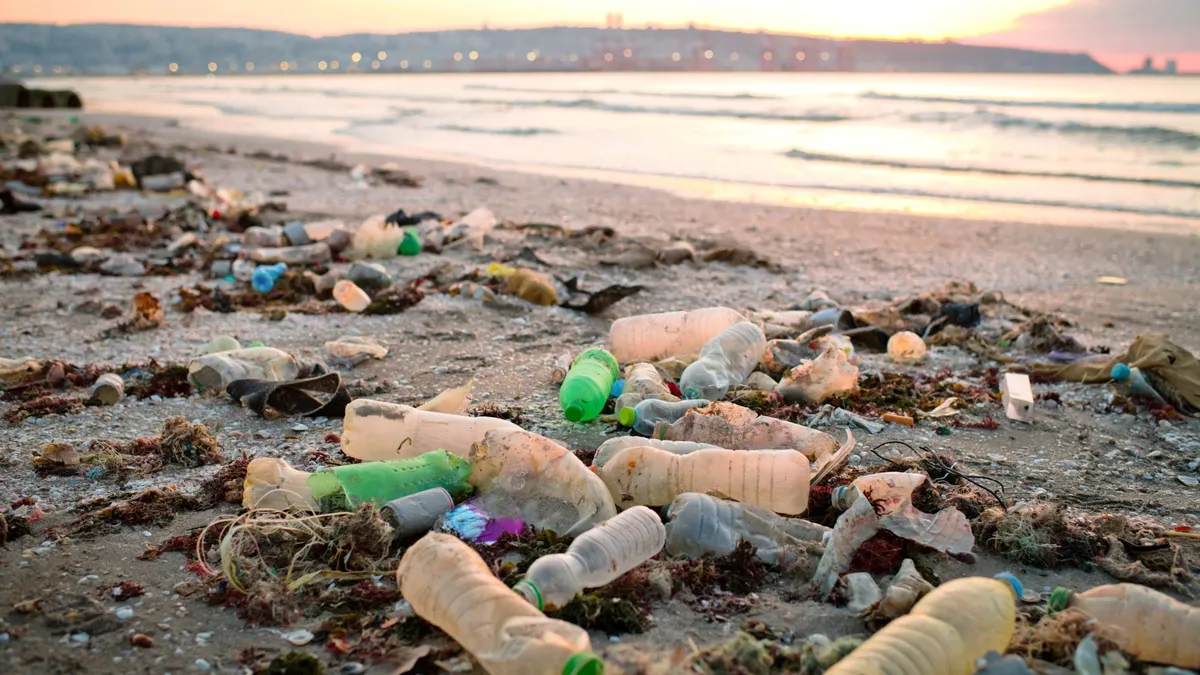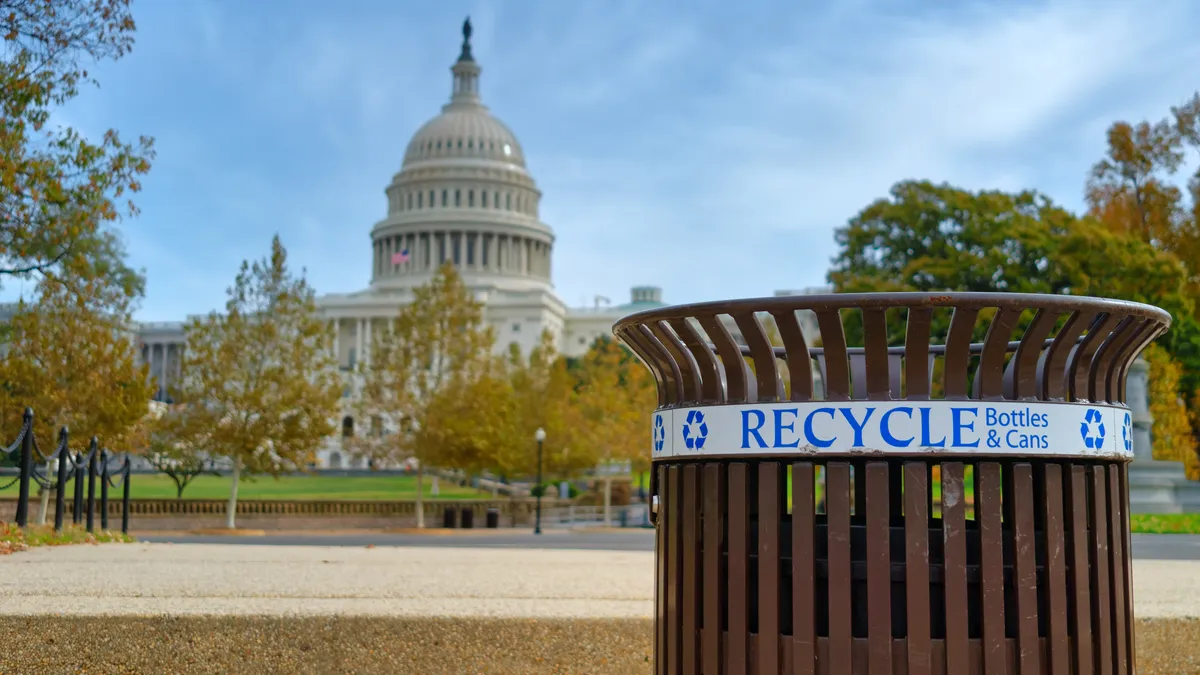National delegations, environmental watchdogs and plastic and packaging stakeholders are gathering in Busan, South Korea, this week for what’s meant to be the final negotiating period to establish a legally binding international agreement to end plastic pollution, an effort spurred by the United Nations beginning in 2022. Numerous groups have voiced their positions ahead of the talks, a meeting known as INC-5, which officially run Monday through Sunday.
The U.S. Plastics Pact is closely watching the potential for provisions related to extended producer responsibility, recycled content mandates paired with domestic sourcing requirements and design for circularity, said CEO Jonathan Quinn in an emailed statement.
“These outcomes will have significant downstream impacts on plastic packaging producers and brands, potentially driving new regulations, innovation, and investment in sustainable packaging,” he said. “A cohesive global framework ensures consistency and reduces complexity for businesses operating across borders.”
The Business Coalition for a Global Plastics Treaty, co-convened by the Ellen MacArthur Foundation and World Wildlife Fund and endorsed by numerous packaging converters and brands, has been an outspoken participant this year. In Busan, the coalition is represented by leaders from Amcor, Alpla, Walmart, PepsiCo, Unilever and others.
The business coalition’s top aims for the treaty include establishing EPR policies that require businesses that “introduce packaging and other short-lived products” to fund collection and treatment after use; reducing virgin plastics; and prioritizing eliminating “problematic plastic applications” that are more likely to wind up as pollution in the environment.
Individual CPG leaders are also speaking out. Unilever’s CEO Hein Schumacher said in a social media post Monday that while the outcome could be “a voluntary treaty that will lead to further regulatory fragmentation, causing additional cost and complexity to business,” it could alternatively be “a treaty underpinned by global rules – one that harmonises regulations and supports business to unlock solutions to plastic pollution at the scale and speed we urgently require.”
Anke Boykin, senior director of global environmental policy at PepsiCo, wrote in an op-ed ahead of the gathering that “clarity and global principles for well-designed EPR schemes within a final treaty” could make recycling systems more effective worldwide.
But the United States delegation has been less clear on its position heading into INC-5. In August, the State Department confirmed reports that it had shifted to support targets to reduce plastic production in upcoming negotiations. Recent reports called that position into doubt. A State Department spokesperson last week did not specify its position, but said the U.S. still hopes to complete negotiations in 2024 and supports an “effective global agreement with meaningful and feasible universal obligations throughout the plastics lifecycle, including production, consumption and waste.”
A coalition of Senate Republicans wrote to President Joe Biden this month asking the administration to withhold support for “constraints on manufacturing and the development of target lists that identify chemicals and plastic products to be banned around the world in a potential plastics treaty.” The Plastics Industry Association also expressed concern about the idea of capping plastic production.
The EU, for its part, said the agreement “must include rules on the elimination of chemicals of concern in plastics, bans and phase-outs on problematic products, such as certain single-use plastic products,” according to a European Commission announcement on Monday. It also called EPR schemes among the “key measures to succeed.”
Erin Simon, WWF’s vice president and head of plastic waste and business, reflected on the status of negotiations on the verge of kickoff Sunday. “If early signals of political will continue and countries are able to stave off the temptation to kick the can down the road then I could see us leaving these talks with a legally binding agreement that ensures nature and people win,” she said in an emailed statement.













